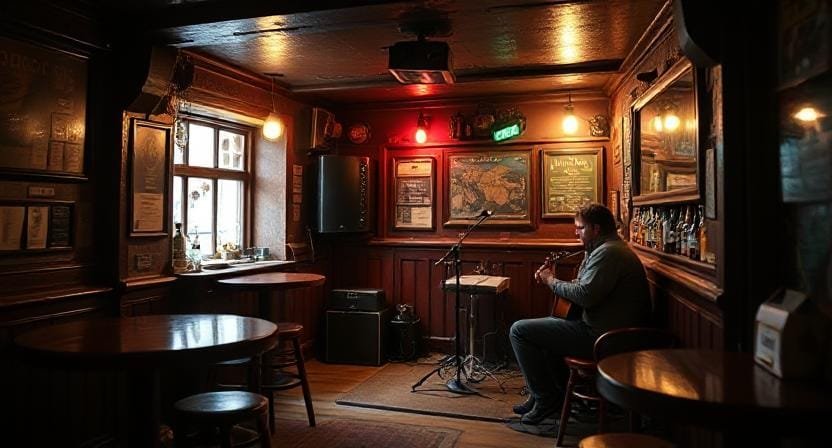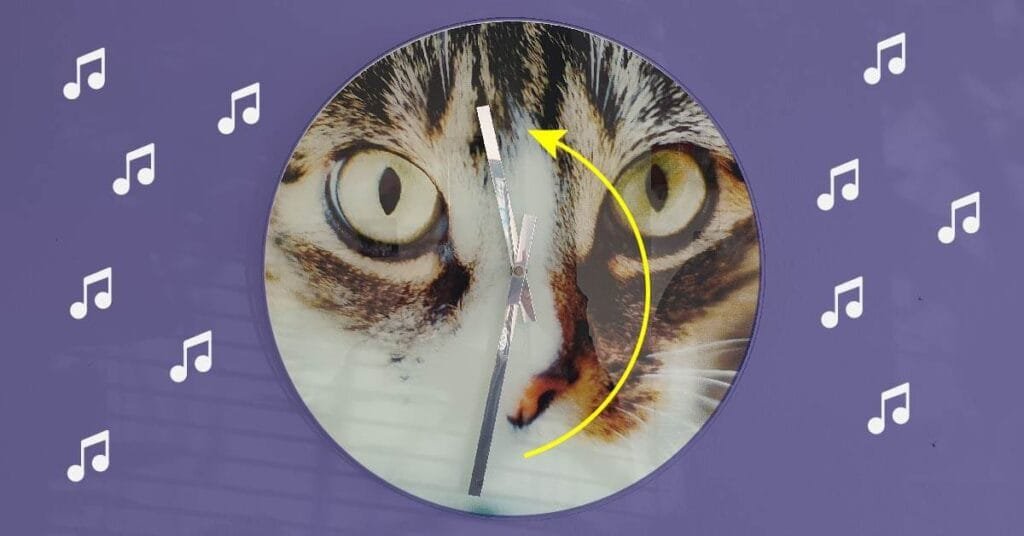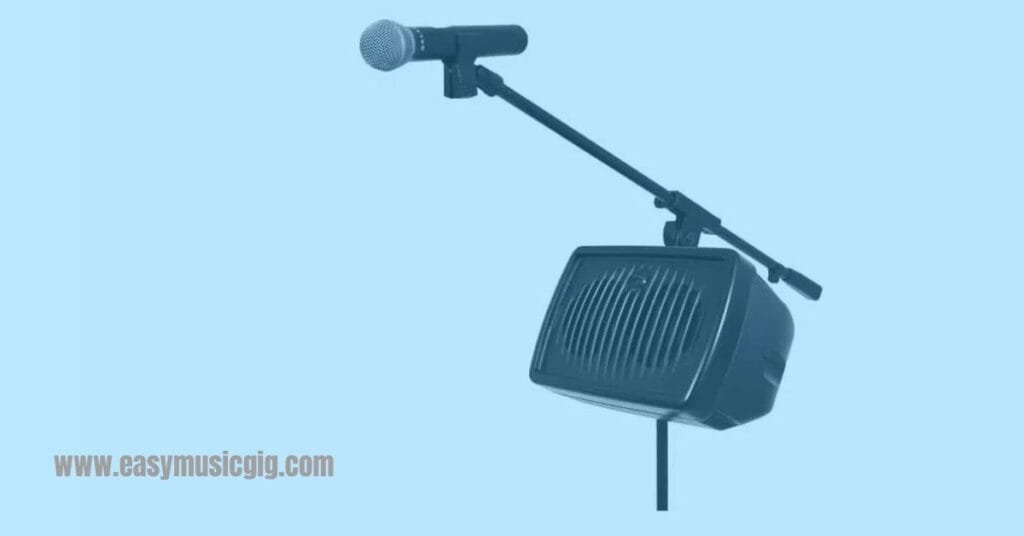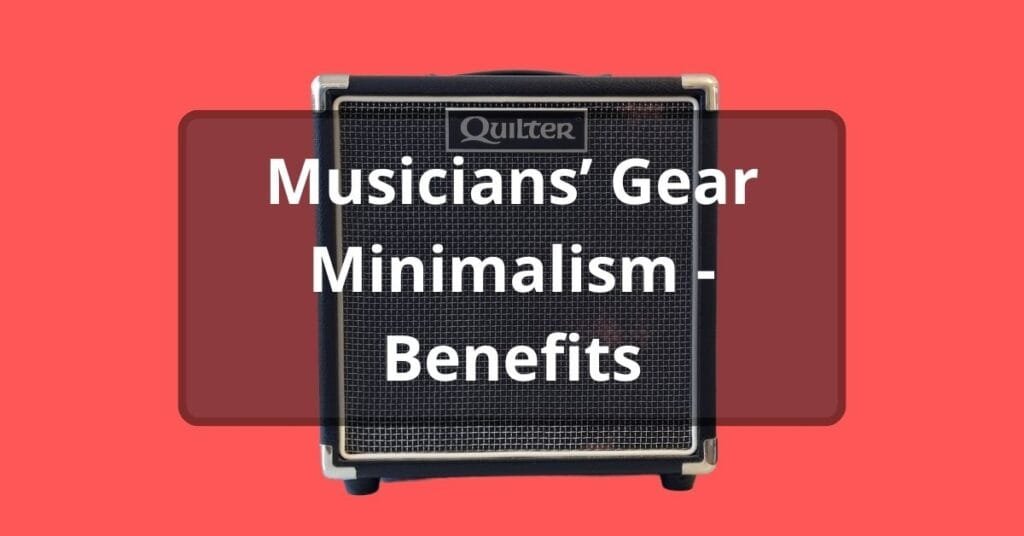The decline of small music gigs: survival tips for gigging musicians
Musicians have been around for ages, but the last 100 or so years have been the time when they started earning a real living. Playing covers at the local pub, restaurant, or hotel has been a reliable source of income for many professional players.
But in recent years, a change has come, and the live music landscape is not the one we once knew. Venues are hosting fewer live acts. Many of them have closed permanently. Audiences are not showing up in numbers we used to see. On the other hand, interest in bigger shows has risen. Interest in live music acts has not disappeared in general, but the types of gigs that audiences are looking for, and places where they can be found, have changed.
This article explores why small gigs are disappearing, the social reasons behind the trend, and most importantly, how to survive these major shifts as a professional gigging musician.
How does this affect my gigging
First of all, I believe that the decline of live music gigs depends on many factors:
- Geographical location (country, regional cultural and economic situation)
- City size
- Seasonality
Living in a city like London or New York has a different potential for playing gigs than in Zadar, Croatia, where I live. I heavily rely on summer gigs, which are usually played in hotels and camps in the Dalmatia region. Throw in some gigs for local tourist boards on public squares and beach bars, and you have yourself a very busy 2 or three summer months of almost every day gigging. The rest of the year can be a struggle if you don’t play private events, since there is no real live music scene in my town.
This is the reality: I used to have from 4 to 6 steady gigs per week during the summer season. By steady, I mean my band played the same hotel, resort, or camp on a certain day of the week. Last summer, my hand had 5 steady gigs, plus additional one-time gigs mentioned above. During last winter and fall, when negotiations took place, 4 out of the 5 steady gigs were cancelled.
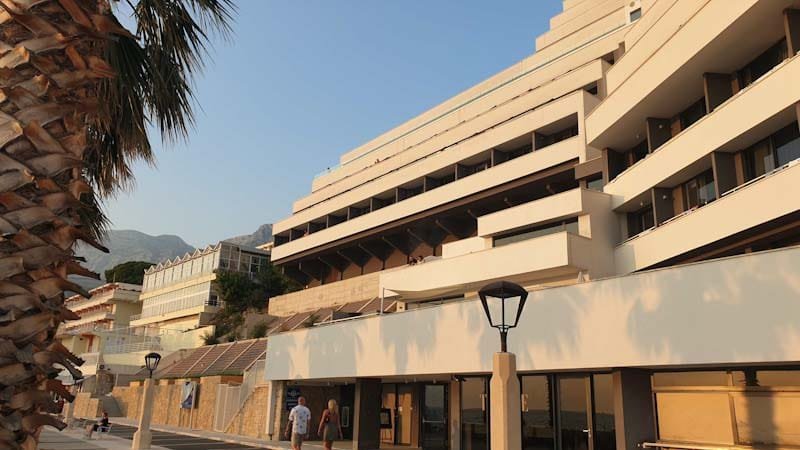
The places we used to play simply cancelled all their shows, or cut them down by 50-70%. One major international hotel brand only booked 3 bands instead of 10-12, and guess what? They said goodbye to the remaining bands in the middle of summer. Obviously, they are cutting expenses. But what does that mean for the hotel guests? Hotel prices have drastically risen over the last 2 years, so now, you get less (no live entertainment) for more money.
Bars that usually had live performances by small bands (2 to 4 members) have now started booking solo or duo acts, or what’s becoming more popular, singers with backing tracks and DJs. Don’t get me wrong, these acts deserve their gigs as much as other bigger acts, but the trend is showing us that live acts, with a rhythm section, are becoming obsolete in some areas.
Luckily, I had a backup plan by playing solo acoustic gigs, and joined one more band, so the main gig season was normal for me. For many others, that was not the case. We’ll talk about how to adapt later on.
Why are small gigs in decline
There are many reasons why the number of small gigs is dropping. These are the major ones:
1. COVID
During COVID, especially during the peak periods, all public activities were hit, live events possibly the hardest. It took at least 18 to 24 months for the pub scene to return to normal, where this new normal was nothing like it used to be.
Some businesses struggled during COVID, but still managed to survive due to their nature, like stores or restaurants, which switched from serving to delivering food. Venues with live music acts were not so lucky. Many visitors changed their behavior even after COVID by visiting indoor live events rarely or not at all.
Many venues were heavily hit by COVID and had to cut down live acts or worse, close their business for good.
2. Audience behaviour
This is something that has been going on for a long time, much earlier than COVID. There are two main reasons audiences are less interested in spending time at the local pub or grassroots venue: the economy and technology.
The world economy is forcing people to work longer hours than they did 20 or 30 years ago. Many have to work two jobs to survive. This leaves them with less time and money to spend on frequent nights out. Numerous jobs allow employees to work from home. This trend is triggering a generation of people who are becoming lazy in finding entertainment outside of their home comfort zone.
Technology that we know today didn’t exist even 10 years ago, let alone 20 or 30 years ago. First, it was cable television that hit the cinemas; now it’s the internet, which is packed with customizable entertainment that never stops. Heck, you can watch your favorite bands on your phone for free, sometimes live. The bottom line is: people find entertainment on their phones.
3. Rising costs – more economic reasons
The working class, if we can call it that anymore, has less and less money to spend on nights out. The same goes for the businesses that run venues with live music. Operating costs like rent, wages, and energy have risen drastically over the last decade. Some reports are showing that operating costs for venues are up to 40% higher than before the pandemic. Unfortunately for musicians, cutting out live music seems the obvious first step for most pub and restaurant owners.
4. The shift in pub culture
This could be listed under number 3 mentioned above, as well as number 2, but since it is not necessarily correlated to them, I will mention it here. The pub culture has been changing over the decades, and owners are looking for ways to grab people’s interest to visit their bar and stay as long as possible.
Quiz nights have become a very popular way of public entertainment. These events aren’t short and have pauses with music sets played by the staff, where food and drinks are ordered.
Theme-oriented nights are also a new thing. It might be food or drink-oriented, or, as we will discuss later, music-oriented. This is where it gets interesting for musicians. Theme nights can actually have live shows where bands play genre-specific or other niche-type music sets.
The social background of fewer gigs
Having free time is becoming very rare, and those who have some time and the budget to go out and have some fun choose experiences that are more curated than before. Before, we would go out without a particular plan. We would go with the flow, depending on who and where we met someone.
Now things are different. If you’re out for the night, you need material to post on social media that has that “wow” effect. What do you think would get more views and likes, content from a mega-concert or pictures of your friends sitting at the local bar having a beer? The answer would be the same even if you can see that there is a cover band playing behind you at the bar.
Gentrification is also worth mentioning. The more people you have living in the vicinity of live-music venues that have been running for decades in the same spot, the more noise-related complaints there will be.
Thanks for building our crowd, now please leave
This is where it gets nasty. There are places, usually newly opened or newly owned, that want to make money, lots of it, fast! I have seen this happen over and over again, and it’s not a new thing.
In these bars and restaurants, musicians are used as guinea pigs. Yes, we help test whether the venue can attract customers and build an atmosphere. Of course, we can attract more people, and they have a good time, spend money, and everyone is happy. Then, once the venue creates a steady buzz, the musicians are the first to go.
One of the biggest mistakes these places make is booking a live act only a couple of times a month. This concept has never worked in the long term, and never will.
What does this mean for musicians? Well, it makes us feel expendable. But what about the customers? They probably still expect live music when they visit the place. What happens afterwards is very common: people stop coming to the place, and it closes, or changes owners, again.
These types of bar owners should decide: do they want to build a live-music-bar reputation with a steady crowd that expects live music two or three days a week, or look for other options for gaining attraction?
What are the numbers
1. Small gigs (grassroots venues, local pubs)
The country that gives us the most data about how the nightclub-pub business is doing is the UK. These numbers are very likely a good estimate of what is going on in other Western countries, like the US and the EU.
Generally, there has been a decline in small public gigs of about 30% over the last 5-10 years and 40%-60% in the last 20 years.
“The UK has lost about 1 in 4 nightclubs / late-night venues since 2020”, reports Musicradar
2. Major acts (big concerts, festivals)
Remember how I mentioned the economy? Well, people still want to go out, and some still want to see a live concert. But since their budget is not the same as it used to be, people are likely to save money to see their favorite famous acts live once or twice a month. This behaviour leaves them with no money for watching random bands in small venues on a frequent basis.
Major acts like Taylor Swift, Coldplay, or Adele are superstars who have shown unprecedented growth in revenue.
North America has a long history of large festivals. The Lollapalooza, Coachella, and Burning Man festivals are well-known all over the globe. This brings us to the term music tourism, which is booming. Statistics are predicting that the music tourism market will rise by 80% in the next 7 years
3. Private events (corporate, weddings, yachts)
Public data for this type of music event is not available, as for public events. According to some data and the information I have from contacts in this industry, I could say that there is a significant rise of about 20% in this type of exclusive music event. As for major festivals and concerts, we can expect greater demand for this type of music event in the future.
How does the decline of gigs reflect on musicians
Musicians who rely on small gigs have been hit especially hard by recent trends. Here are some effects that can be noticed:
- Fewer venues with live music and those that are organizing gigs are doing it less often
- Lower pay for bands, fewer tips
- Higher competition – Acts that can make the crowd spend more money will get the gigs
- Professionalism / Social media – If you don’t have a polished social media package, the bands that have it will push you out. How your band looks and acts is key. An unprofessional attitude will get you zero gigs.
How can musicians adapt: things every musician should do
1. Diversify income
This isn’t actually about getting more gigs, but it is a normal habit for professionals, especially in big cities where there is more opportunity for music-related incomes. Teaching, playing at private small parties, starting a YouTube channel, or busking can generate a decent additional income. When you are involved in multiple music activities, you are automatically networking, which can, in the end, give you new opportunities for more live gigs.
2. Be different: niche is in
If your band plays covers of all types of genres, from the 50s to the present day, chances are, there is a better band with a better package out there that will get the gigs. Venues are looking for unique acts that can attract niche audiences. Specialise in playing Beatles songs, 80s hits, or Motown and Stax songs. These types of acts stand out from the crowd and are in higher demand than the “band that plays everything”.
3. Package the show
Become your own promoter. Venues like bands that have a strong presence on Instagram and YouTube. Prepare a couple of digital versions of your show’s poster that you can easily customize. When you negotiate, emphasize your uniqueness and how it contributes to great shows. A website is not as popular as before, but for exclusive events, it shows how professional you are.
4. Concentrate on private instead of public gigs
This is about diversifying live gigs, rather than the musicians’ profession altogether. If we look at the numbers, we can clearly see that something drastic is changing in the gigging business. While public small gigs are in decline, private gigs are actually in greater demand. These live performances can be:
- Weddings
- Corporate events: Product launches, team building, annual gatherings
- Hotels in major tourist areas
- Yachts
- Home parties: birthdays, various celebrations,…
- Fundraising events
5. Expand your repertoire and band variations
Like any other profession today, musicians have to be flexible, an all-in-one chameleon-type player. Not all events are the same. OK, you’ve got this great 8-piece vintage-cover band going on, and bookings are promising. But some events just need some background music. For this type of event, you will need easy-listening, low-tempo songs, perhaps some jazz standards, and acoustic versions of what you usually play.
Be prepared to play in any band formation the situation asks for. Dj, Solo, duo, trio, or full band, it’s up to the people that are hiring you. This is something you need to have in your promotional materials, so that people can see that your band can adapt to any formation needed for a specific event. This signals professionalism and will get you more gigs.
Conclusion
New technology was one of the main reasons modern gigs were born. Once again, technology is shaping the industry, but in a new way. The decline of small, public gigs has been going on before COVID. Audience behaviour and economic trends have a direct impact on the future of gigs in small venues like bars and restaurants.
Bands playing covers are hit hard by this new normal. They very often rely on these gigs as a full-time job or a side hustle. The live performance landscape has changed, and musicians need to adapt quickly. Every segment of a musician’s career is important; focus on all of them, and you will succeed. Gigging is not dead; it is only changing.
